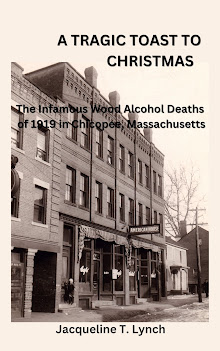Tuesday, March 10, 2015
Watch on the Rhine and Waiting for a Theater in Springfield, Massachusetts - 1942
This Thursday on my Another Old Movie Blog, I’m going to reveal the cover of my latest non-fiction book,
Ann
Blyth: Actress. Singer. Star., on the career of film star Ann Blyth,
which will be published in June. Ann
Blyth, if you’ve read any of my blog posts last year, had a part in the prestigious
Broadway drama Watch on the Rhine by
Lillian Hellman, when she was just a girl.
That play was a colossal hit, and
after its Broadway run, it toured the country.
It came to the Bushnell Memorial Theater in Hartford 73 years ago this
evening, March 10, 1942. We mark this
occasion with a very interesting editorial by W. Harley Rudkin in the Springfield (Massachusetts) Daily News of March 14, 1942 which lauds
the performance he saw in Hartford, but also makes several observations about
why the city of Springfield, which was originally supposed to be on the list of
cities in the national tour of Watch on
the Rhine, was excluded.
Today, Springfield is undergoing
a great change—construction and reconstruction—with the impending arrival of a
casino. Mr. Rudkin’s words on the
importance of a theater to a community, the soul of a community, is well said,
and though CityStage and Symphony Hall serve playgoers today, the grand theater
Mr. Rudkin pleaded for in his editorial never materialized. Indeed, the Court Square Theater had only
another decade of life in Springfield, and the grand old vaudeville houses were
a thing of the past. The Bushnell,
meanwhile, still graces Hartford.
“Again the Big Ones Got Away; Our
Tackle was Not Adequate”
By W. Harley Rudkin
This
week just past has been a big one for Hartford, and for such Western
Massachusetts theatergoers as were able to get to the Bushnell Memorial for McBeth, and Watch on the Rhine.
The
former grossed better than $10,000 for two performances. Figures on the other are not immediately
available, but they were hanging out the SRO signs early at all three
performances.
That
is very nice, and I am happy for Hartford. It knows how to support its theater. It turns out in droves for the good, indifferent
and bad. It is a theater-conscious
community in which the potential audience is rapidly reaching such proportions
that I shall be surprised if the day does not come when major productions land
in Hartford for extended runs of two and three weeks just as they do in Boston,
Baltimore, Philadelphia and Washington.
For
Watch
on the Rhine they were everywhere but
hanging from the chandeliers, and the only reason they weren’t there is because
there aren’t any.
The
natural follow to all this, of course is—why not in Springfield? What is wrong with us? Are we lepers, but the show business persists
in feeding is crumbs most of the year with an occasional slice of cake at odd
moments? No matter how much we may pride
ourselves on our progressiveness, we are still standing at the back door of the
legitimate theater with our hat in our hand.
There
is a reason, a very definite reason.
Watch on the Rhine was slated for the city on March 11 for
matinee and evening performances under the aegis of the Playgoers of
Springfield. Instead it played two days
in Hartford. The inference is obvious. If Springfield had been so situated that it
could given the play the same contract it would have stood the same chance. And that is too bad, for a more exciting
experience could not possibly grace any theater season.
We
are restricted in our theater life because we have no theater that is adequate
to our needs. Hartford can move a play in on any day of the week and come very
close to guaranteeing the company capacity houses. That means 3000 or better. We can give them 1600 people at a time-and
they can come in only on Monday, Tuesday or Wednesday. Even at that we must negotiate with the
theater two weeks in advance of anything we want to bring in.
If
we could have the new Hepburn play, Without Love, or Candle in the Wind
tomorrow we couldn’t accept the offer. There
is too much red tape binding our hands. For anyone who wants to know what happens to
our theater season, there is the answer. We simply are not adequately equipped to bid
against communities that can double us every time. Sort of unpleasant, isn’t it?
The
answer to all this? There are several. Outside interests that might consider the city
a good theatrical venture might be persuaded to build a theater commensurate
with our needs. Some public-spirited
individual might like to perpetuate his or her name by one of the most
worth-while donations that could be made to the cultural life of any community.
There is plenty of precedent for it. Local businessmen with an eye toward public
service and the possibility of a fair return on investment might consider
building a theater. Then, and only then,
we can come out of hiding. Active
enterprise working against heavy odds has brought us what theater we have. This is the time for branching out. The road is in the ascendant. We should be ready to meet our opportunities.
Posted by
Jacqueline T. Lynch
at
7:35 AM
![]()
Labels: 20th Century, 21st Century, Massachusetts, theatre
Subscribe to:
Post Comments (Atom)










No comments:
Post a Comment